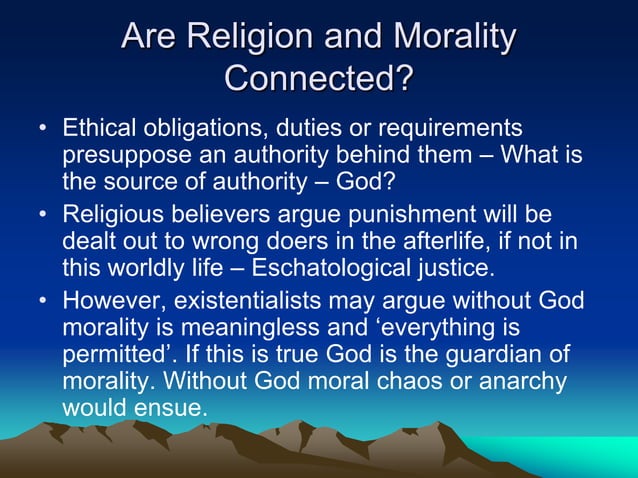The Relationship Between Religion, Morality and Societal Progress
The Complex Role of Religion
Religion plays a complex role in societies. It can help establish basic moral and behavioral guidelines that foster cooperation and order, particularly for early civilizations. By providing explanations for unknown phenomena and purpose for life, religion fulfills psychological needs and gives people guidance. However, religion is not the sole source of morality, as studies show atheists can be just as moral as the religious. Beyond basic morality, religion’s influence on societal progress depends greatly on how it is structured and adapts to new ideas.

When Religion Promotes Progress
In early history, religion nurtured civilizations by establishing rules for living together peacefully. Religions answered existential questions simply for less scientifically-literate people. This basic societal framework helped early humans survive and thrive. However, religions face challenges when new knowledge challenges established doctrines. Those open to reinterpreting scripture in light of science, like some modern denominations, allow progress. Those refusing to acknowledge scientific advancement risk impeding it. A religion supporting free exchange of ideas and debate is less likely to conflict with progress compared to one promoting strict obedience and censorship.
When Religion Hinders Progress
During the European Middle Ages, the dominant religion, Christianity, became too rigid and resistant to change. The Catholic Church centralized knowledge and banned dissent, limiting new discoveries. This “Dark Age” stagnated progress for centuries as religious dogma overruled empirical evidence. Galileo faced house arrest for proving Earth revolved around the Sun, contradicting church doctrine. Strict adherence to literal scripture also hampered the acceptance of evolutionary theory for a long time. Religions prioritizing established beliefs over open-mindedness are more likely to conflict with scientific or social progress. If new thinking threatens religious authority, there is risk of backlash slowing societal evolution.
Religion as a Tool of Politics and Control
Many rulers throughout history allied with religion to consolidate power and control populations. Religions provide established social structures and mass loyalty to doctrines. Oppressive governments manipulated peoples’ faith to justify conquests, punish dissidents and maintain the status quo. This political exploitation damaged religion’s credibility over time. As education increased, religious leaders lost their information monopoly. People could examine doctrines critically without fear of reprisal. Free thought weakened absolute religious authority and people prioritized reason over strict obedience to clergy or holy texts. However, religion remains a powerful political tool for some pursuing nationalist or authoritarian agendas even today.
Faith Versus Organized Religion
Personal faith need not contradict scientific findings or social progress. Spiritual beliefs provide purpose and comfort for billions worldwide. However, organized religions as human institutions are fallible if not open to reform. Most major faiths originated organically to meet needs of local populations over millennia. Over time, religions grew highly structured political hierarchies invested in self-preservation. But faith is a private matter, whereas organized religion involves regulating large groups and standardized doctrines. Individual spirituality can exist without compulsory obedience to religious authorities or dogmas contradicting modern ethics and knowledge. With reformed leadership embracing change, faith communities could guide ethical development without impeding societal betterment through science, law and cross-cultural understanding.
Religion’s Complex Role in Society
In conclusion, the relationship between religion, morality and societal progress is multifaceted. While faith can help communities thrive, organized religion risks impeding progress if unwilling to evolve. At certain points, some faiths promoted ethical development and answers to life’s mysteries even as political institutions stifled change and creativity. Religions could reinforce moral behavior taught through other means like social norms or laws. Cultural, economic and educational developments weakened absolute religious authority gradually. Individual spirituality seems compatible with social progress, but institutionalized religions risk conflict if opposing science, liberty of thought or equal rights. Overall, open-minded faith communities adapting faithfully to modern values may prove part of ethical societies’ moral framework without obstructing continual betterment.
